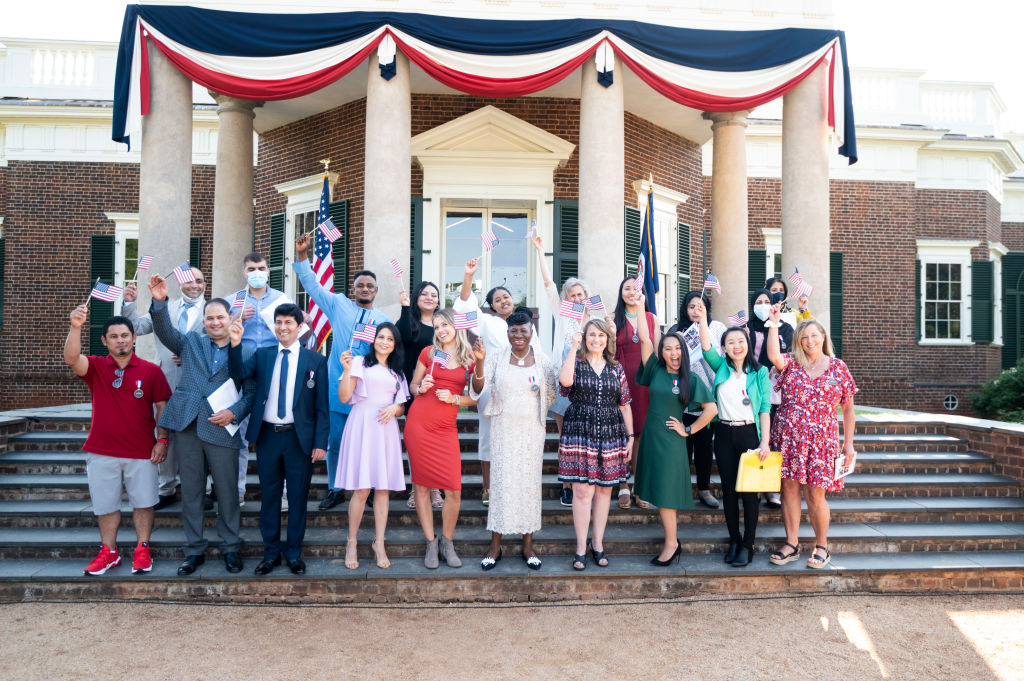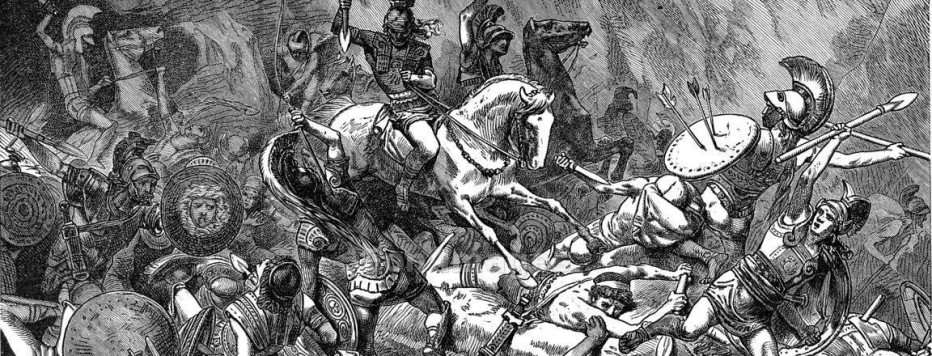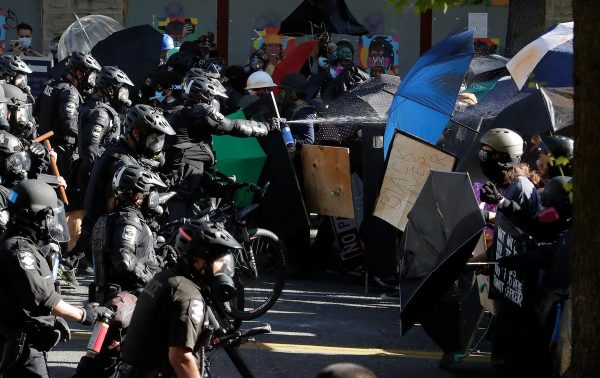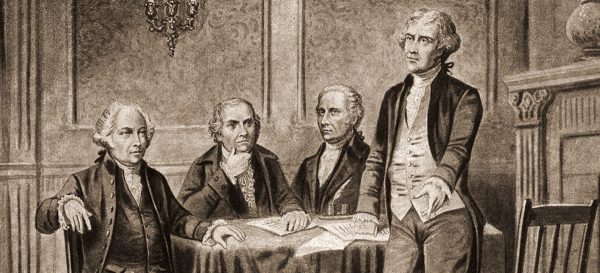In 2010, Claremont Institute Senior Fellow Angelo Codevilla reintroduced the notion of "the ruling class" back into American popular discourse. In 2017, he described contemporary American politics as a "cold civil war." Now he applies the "logic of revolution" to our current political scene.
Welcome Home

Naturalization is one thing, but feeling naturally American is something else.
One question naturalized citizens are frequently asked is, “When did you first feel like a real American?”
The most common response, “At the naturalization ceremony,” is usually a lie. If it were true there would be no need to ask the question. Naturalization is a big deal, because it puts an immigrant on equal legal footing with a natural-born citizen, and it’s a joyous occasion, but it’s rarely a transformative experience.
My own naturalization ceremony felt like a formality. It was conducted at a large stadium in Sacramento two days before the Fourth of July. The affair was filmed and shown on local TV the following day. It was probably good television, but it felt impersonal to those of us who were a part of it.
Immigrants who tell you that they first felt American when they bought a house in the U.S. are not lying, and not only because holding a deed to an actual parcel of the fruited plain is a key part of the American promise. It requires from a new American something deeper than hard work and smart management of personal finances—both excellent qualities for obvious reasons. Home ownership means going native.
Most peoples don’t live like Americans. I was born and raised in brutalist Soviet midrises with a common yard where the latchkey apartment kids were observed by ubiquitous babushkas on the bench. These proto-Karens reported every transgression to our parents, but failed to prevent the epidemic of substance abuse, teen pregnancies, and divorce, not to mention abortions.
Our doors had two locks, a peephole, and a deadbolt. The neighbors knocked on walls and the ceiling if we made too much noise. At rush hour, we left our tiny dwellings, and stuffed ourselves into overcrowded buses that moved on an unpredictable schedule. On the plus side, we had an historic downtown flooded with attractive young people who obviously didn’t buy their clothes at government stores.
To own a house with a yard and a car is to adopt a way of life founded on the values of privacy and autonomy, the kind of mentality that allows for formation of a civil society. But buying a house was not the time when I first felt American.
In the fall of 1998 I flew to Europe for vacation. With cheap off-season tickets, and a newly issued passport of the sole remaining superpower, the world was my oyster. I walked onto the airplane, uninspected, two minutes before departure. I have extended relatives dispersed through the Old Continent, and I was staying with them on parts of my journey.
In Germany, where they’ve been trying to rebuild the Jewish community, my cousin took me to a Munich café where both Lenin and Hitler used to hang out in the opening decades of the 20th century. We gossiped about the men we dated, and she joked that she loved her job and her apartment on the outskirts of the city very much, and, well, this was Europe, but should something happen, Dachau was just a few miles away, so I should know where to look for her.
I had lots of tour guides. My Munich cousin knew half of Europe and gave me some numbers to call in the Czech Republic. I had another cousin near London who was married to a Scottish guy and worked as an interpreter at the airport. Part of her asylum claim was the fact that her long deceased Chechen grandfather was a political prisoner under Stalin. I didn’t worry excessively about open borders; I just thought that the United Kingdom had an odd immigration policy.
Sometimes I traveled alone, which was nice, too, because I got to meet people. The question “Where are you from” was confusing. The answer was always complicated because my country of origin no longer existed, and I didn’t speak the language of the one that replaced it. And, in any event, that’s not why I look the way I do, and if I start explaining all the detail, the eyes of people in the conversation would go dull.
I now lived halfway across the globe from my place of birth and spoke accented English. I can’t possibly be from the Oakland near San Francisco because anyone can tell that I don’t sound like a Californian, so it must be Auckland, New Zealand that I’m talking about.
I flew back from London to Chicago where I was catching the connecting flight to Oakland. I spent five hours in an awkward position, trying to sleep, and chewing gum to relieve the air pressure.
When we landed, I stepped off the plane, and lined up for passport control and customs inspection. A meaty officer stood there with blond hair, a short neck, and pink skin. Next to him, on a leash, was a stocky dog with large jaws.
“Oh, no!” I thought. I don’t know why the two made me nervous; it’s not like I was trying to smuggle in absinthe from Prague like everyone else; nor was I standing at a long-vanished border crossing in the East, my bag stuffed with decadent rock music cassettes and banned bourgeois propaganda.
“Passport please,” said the officer.
I gave him my passport. He opened it, he looked at me, he looked at the passport, and at me again. And then he smiled a nice Midwestern smile, and said “Welcome home!”
And that’s when I first felt like a real American.
The American Mind presents a range of perspectives. Views are writers’ own and do not necessarily represent those of The Claremont Institute.
The American Mind is a publication of the Claremont Institute, a non-profit 501(c)(3) organization, dedicated to restoring the principles of the American Founding to their rightful, preeminent authority in our national life. Interested in supporting our work? Gifts to the Claremont Institute are tax-deductible.
Wokeism is the essence of anarchy.
A response to Christopher Flannery.



